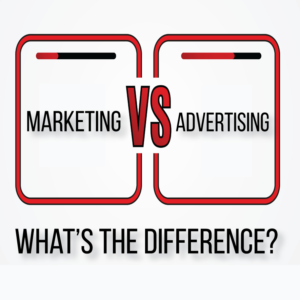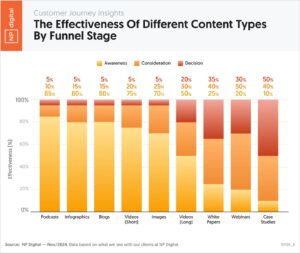How To Storytell In A Boring Industry

Intuit QuickBooks – Accounting Software
The accounting software industry may seem uninspiring at first glance, but QuickBooks has changed that narrative. Their “Small Business, Big Dreams” campaign focuses on real-life entrepreneurs, showcasing their journeys, challenges, and triumphs. By creating relatable and human-centered stories, QuickBooks underscores its role as a partner in growth, resulting in higher user engagement and retention.
Results: This campaign contributed to a significant increase in positive brand sentiment and engagement metrics, underscoring the value of positioning content around customer stories rather than product features alone.
John Deere – Agricultural Equipment
John Deere’s content strategy goes beyond machinery, using storytelling to engage a broader audience. Through The Furrow magazine, which has evolved into a robust online platform, John Deere highlights stories about sustainable farming, technological innovations, and real farmers’ experiences. This approach not only informs but fosters loyalty by addressing the interests and values of its audience.
Results: By focusing on content that educates and resonates, John Deere has reinforced its brand authority in the agricultural sector, leading to increased trust and long-term customer relationships.

Geico – Insurance
Insurance isn’t typically viewed as an exciting topic, but Geico has broken this stereotype through humorous and memorable campaigns. Their “Hump Day” commercial is a prime example of how injecting humor into relatable, everyday scenarios can create a strong emotional connection with audiences. This method makes Geico stand out in an otherwise monotonous industry.
Results: The campaign’s success was evident in both its viral reach and subsequent uptick in brand recognition, showcasing how humor can be a powerful differentiator in competitive markets.
Key Takeaways for Business Leaders:
- Empathize With Your Audience: Understanding what your audience truly cares about can transform dry content into compelling stories.
Leverage Visual and Interactive Media: Videos, podcasts, and interactive social media campaigns can help breathe life into complex topics.
Tell Human Stories: People connect with people. Highlight real users, employees, or experts within your industry to make content relatable.
Final Thoughts: Storytelling can transform even the most “boring” industry content into compelling narratives that drive engagement, strengthen brand trust, and foster customer loyalty. By focusing on relatable stories, proven results, and educational value, your content strategy can deliver measurable growth and keep your brand ahead in a competitive landscape.
Recent Posts

SEO Provides the Best ROI of Any Inbound Marketing Channel
SEO ROI Beats All Other Marketing Channels I built my first website in 1996. Back then, ranking in search engines was as simple as tweaking

How Is Advertising Different From Marketing?
How Is Advertising Different From Marketing? Recently, I had a thought-provoking conversation with a business owner who shared that many entrepreneurs in his industry often

Unlocking the Power of Buyer Personas
Unlocking the Power of Buyer Personas This month, audits have taken center stage—whether evaluating content performance, assessing landing pages, or refining digital strategies. One recurring

Customer Journey Content
How to Choose the Right Content Types for Every Stage of Your Customer Journey Content Strategy Is your content actually working for your business? If

Are You Failing To Reach 83 Percent Of Your Target Audience?
Are You Failing To Reach 83 Percent Of Your Target Audience? In today’s fast-paced digital landscape, many small business owners find themselves stuck in a

Why Do Jewelry Stores Fail at Storytelling?
Why Do Jewelry Stores Fail at Storytelling? There are few purchases in our life that emote more emotion than jewelry. We buy jewelry to mark